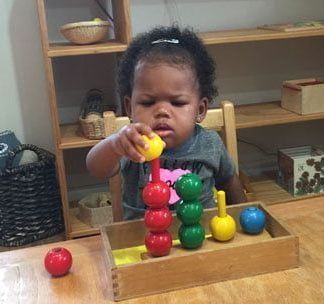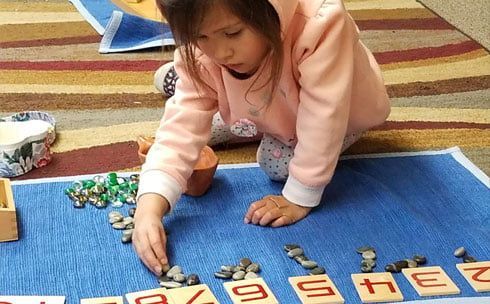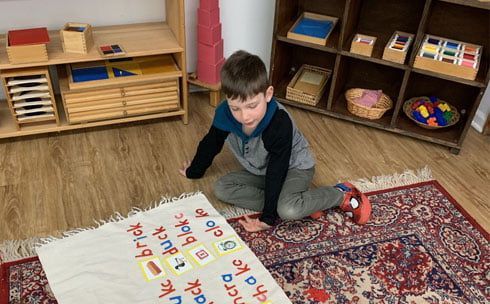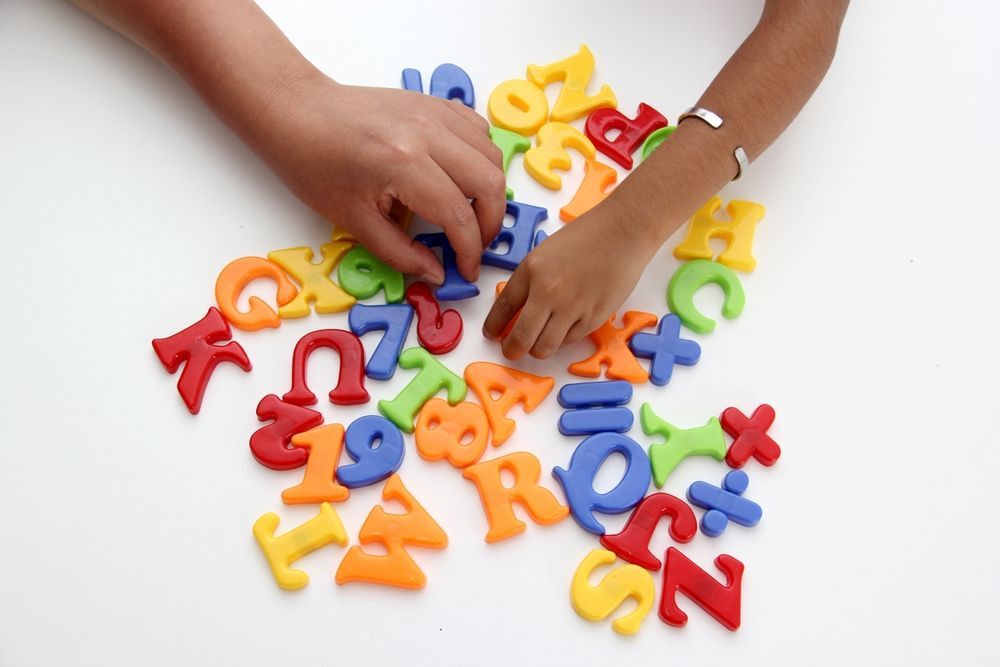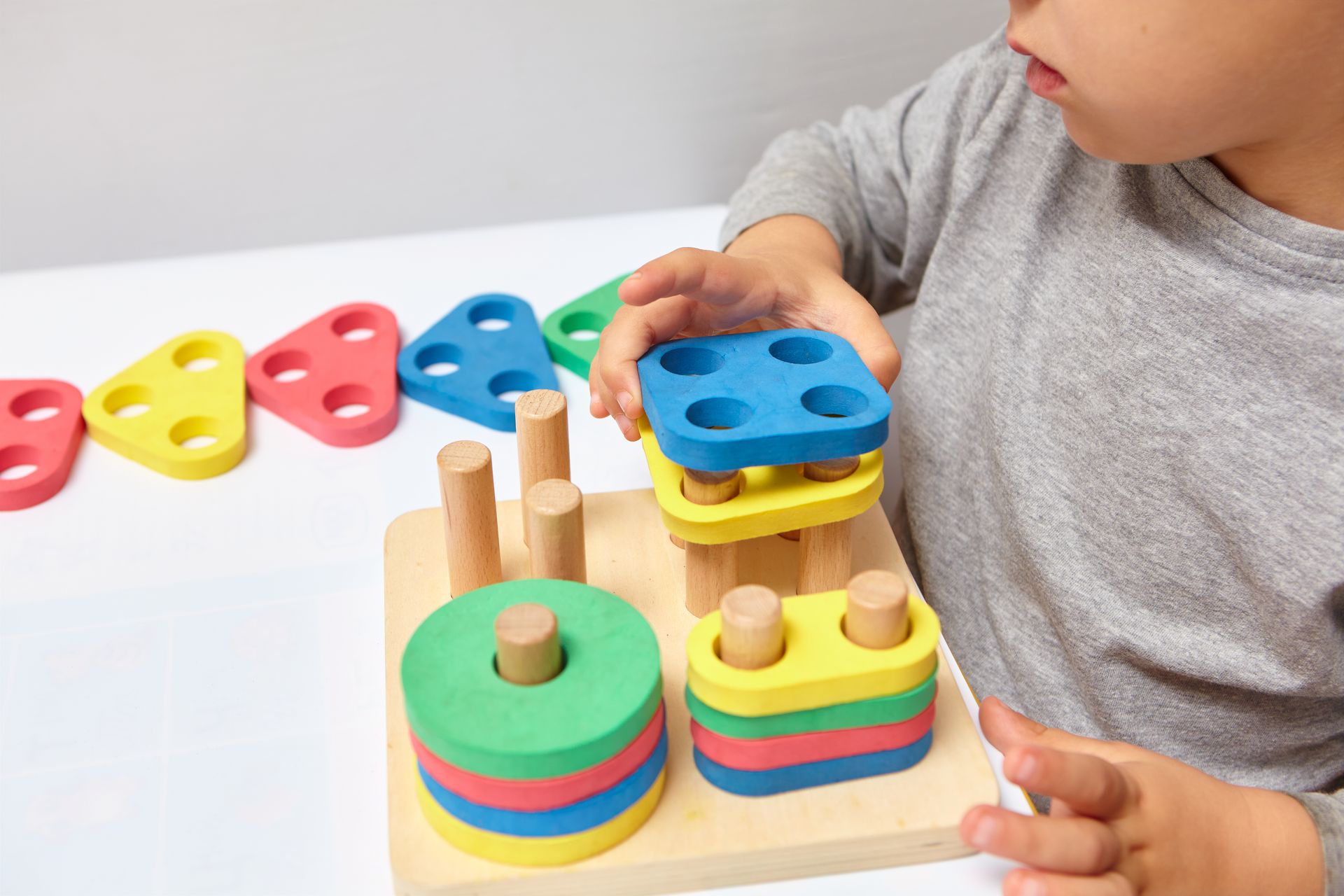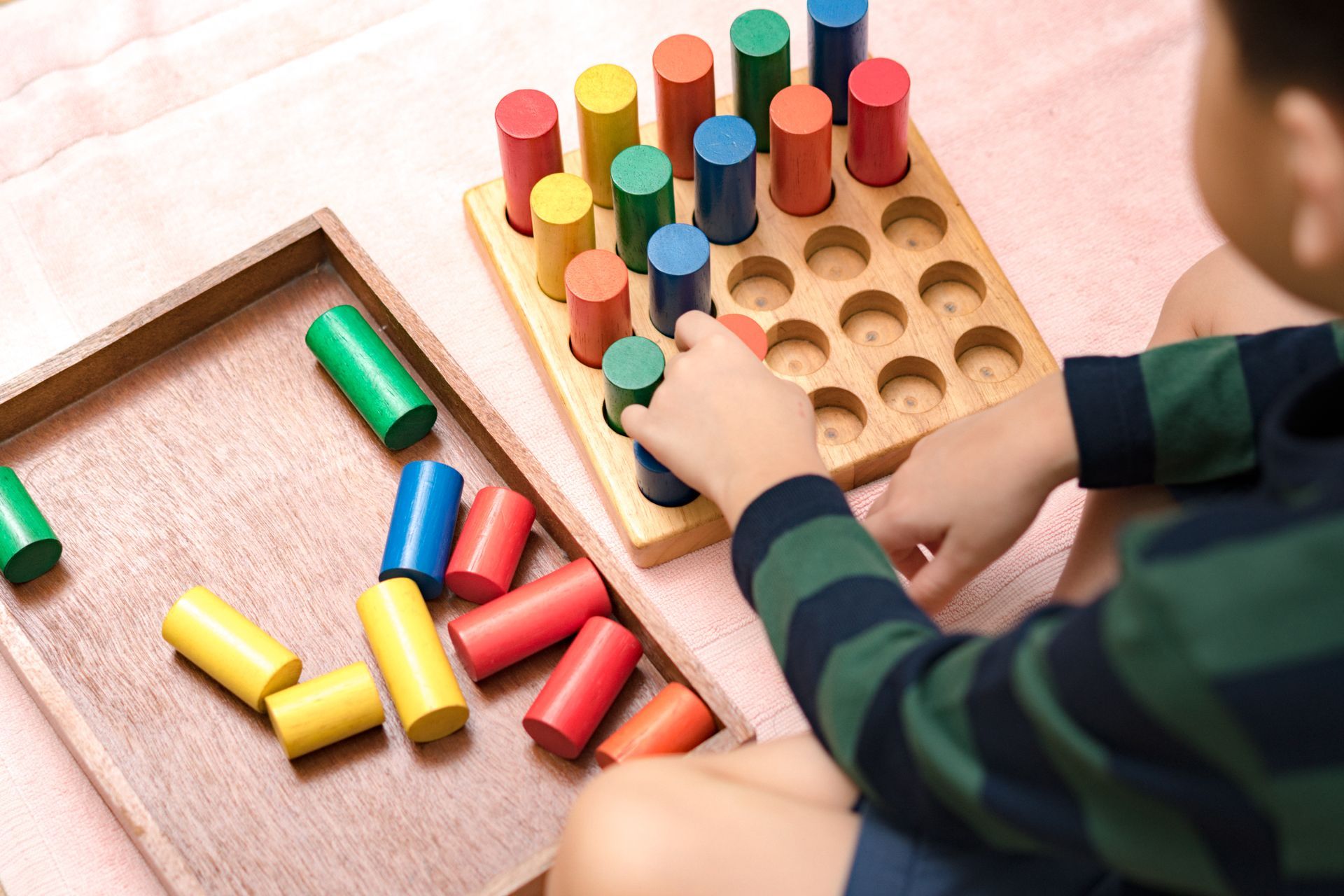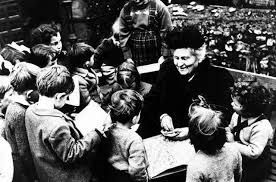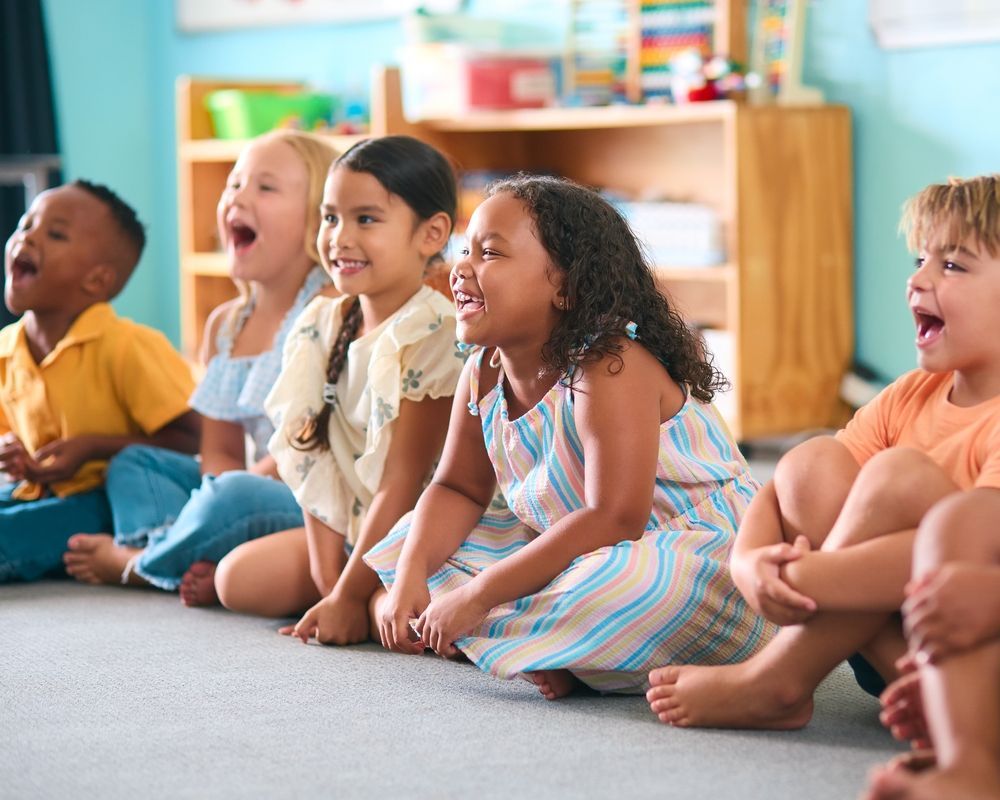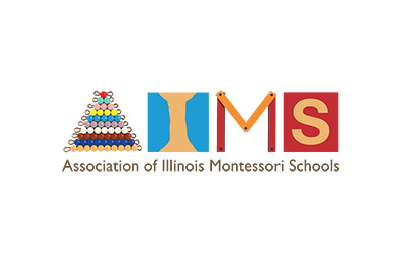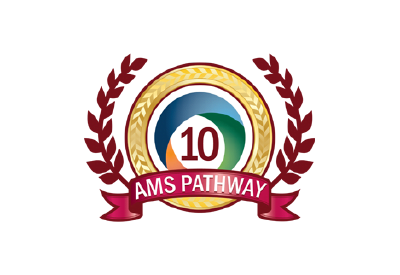How Do Montessori Schools Grade Children?
Share this Article:

Understanding Montessori Grading
How exactly are Montessori students graded? There's a short answer: They aren't! But there's a longer answer too, which answers more of the questions that naturally come up in a world where conventional school (and conventional grades) are considered the gold standard. Read on to find out about the Montessori grading system, why this process is chosen, and what it means for your child.
The Philosophy of Montessori Education
The Montessori model is unique among educational philosophies--and it has received some criticism in recent years for its unapologetic deviation from conventional schooling methods. In a Montessori school environment, self-motivation is fostered and cherished. Children thrive in an environment replete with learning opportunities. The Montessori philosophy acknowledges that every child is unique, with strengths and weaknesses as individual as a fingerprint. That's why Montessori schools allow students to challenge themselves (and each other) in ways that promote organic learning and growth.
Some skeptics would argue that the lack of measurable, easily-compared grades puts Montessori students at an academic disadvantage. But those well-versed in Maria Montessori's methods would strongly disagree. Far from a passive, lackadaisical approach to schooling, the Montessori method allows students to find their strengths and excel in ways their conventionally-schooled peers cannot. This is largely because grades aren't presented as a competition or, indirectly, as a measure of self-worth.
Instead, students receive support in areas where they need it, often from older students in the same class. They have resources at hand to dig into areas of struggle, and resources to thrive and delve ahead in other areas where they're naturally strong.
Montessori Assessment Principles
Part of understanding the Montessori approach involves diving into the grading process: how and why children are (or aren't) graded. We're going to break down the thought behind that process here.
Instead of being assigned a grade--a number grade, indicating progression through the school system, or a letter grade, indicating success in a given subject--Montessori students are evaluated as whole people who are progressing developmentally. That means that students take a look at their accomplishments, including physical capabilities (like fine motor skills; handwriting; puzzles/building/etc.), spatial reasoning skills, and math and phonics abilities as they grow. Montessori schools typically create a showcase of abilities for each student, but instead of being measured by standardized (and arbitrary) exams, they're measured by the observation of the instructors who work with the students each day.
Key Differences from Traditional Grading
A traditional grading system or "bell curve" measures students against each other, rather than evaluating students as individuals. The traditional A, B, C, D, F system is intended to measure averages, with "C" being the average grade, "A" being superior, and "D" being subpar/unsatisfactory, or in the lower percentage of the overall student body or class. This scoring system rewards students who excel at test-taking accuracy, but it fails to account for overall achievement; it also fails to measure a student's actual understanding of the material covered.
In many cases, these traditional grades--which account for so much when it comes to scholarships, college admission, and in some cases, a student's sense of self-worth--measure only the student's success or failure at test-taking, not mastery of the material. In pursuing a high academic grade, many students end up losing any desire to process and assimilate the material being learned, or to connect it with other aspects of their educational career. The focus becomes the grade itself, and how that grade measures up against their peers.
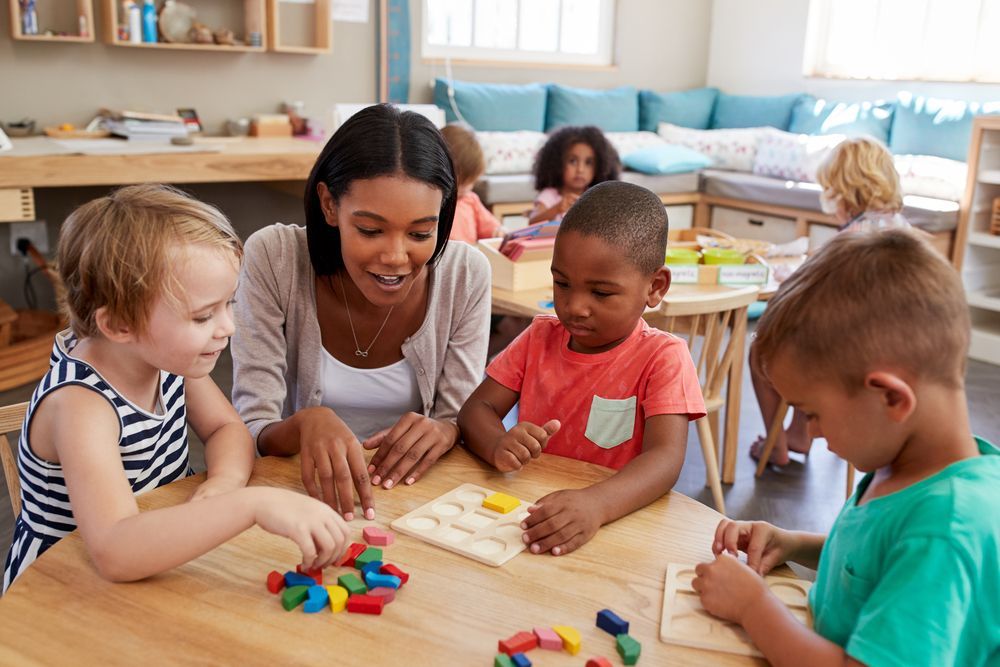
Benefits of Montessori Assessment
Montessori assessments instead place value on individual student achievements. It allows students to showcase their achievements, and it allows educational professionals to have a more complete view of the student's academic strengths and weaknesses. And it does so without labeling their efforts as "subpar" or "failing." The long-term positive impact of that type of assessment cannot be overstated.
In a nutshell, benefits of a Montessori-style assessment include the following:
- More flexibility in approach to school grades and challenges; students aren't limited to learning whatever is "grade appropriate," but are free to excel in areas of strength and spend more time in areas where they need more practice
- Allows students more self-motivation to continue building on their existing skills, rather than thinking they're "good enough" or "just not good at that" when it comes to specific subject areas
- Allows parents to effectively track their child's progress in terms of specific skill areas, rather than arbitrary grades and levels
- Provides a more holistic, realistic view of learning, which doesn't always progress in a linear fashion
The Role of Montessori Teachers
Teachers are there to support students, answer questions, and facilitate growth. In some ways, Montessori teachers are responsible for "setting a feast" for children: providing age-appropriate materials for students to process, experience, and take in, then providing the support for them to do so. In many ways, Montessori students take charge of their own education--but with the guidance of experienced instructors providing the materials, experiences, and support necessary to take on new challenges, grow, and thrive along the way.
Student-Centered Assessment
Montessori teachers take the responsibility upon themselves to observe, collect examples of student work, and interact with students to assess their progress. Unlike conventional grading systems, which put the impetus on the child to answer questions correctly or demonstrate their mastery according to a prescribed formula, Montessori assessments focus on each individual student and their personal strengths--as well as their areas in need of more practice, training, development, and growth.
Montessori Assessment Principles
All students work their way through a developmental progression, and they all get there at various speeds. Montessori evaluations focus on a child's accomplishments, include examples or descriptions of their work (which varies, of course, depending on their age and development), and sometimes also include a checklist of skills as students work toward mastery.

Children are typically evaluated based on three criteria:
1. Observations: Instructors watching the child's interaction with other students, the material being studied, and the world around them
2. Conferences: One-on-one interactions between an instructor or director and the child, giving children an opportunity to demonstrate their skills without the pressure of comparison with other children
3. Work Samples: For students at a developmental age where work samples are possible and appropriate, demonstration of writing, mathematics, and art skills also complete a sort of showcase of their skills and abilities--at a far higher level than a multiple-choice test ever could.
Fostering Independence
Fostering independence is a huge priority in Montessori schools, and teachers work hand-in-hand with parents to allow students the flexibility and opportunity to pursue areas of interest and development both in and out of the classroom. Children are given the freedom to delve ahead in subject areas of strength, to spend more time working on areas in need of support, and to practice new skills at their own pace.
Tailored Learning and Individual Growth
The result? Students who began their education in Montessori schools are often highly self-motivated, independent learners who have the most important skill of all: the ability to identify and expand on their own interests, and to teach themselves. The Montessori grading system is a key element of that development, and it has a long-term effect on students' educational experiences.
Curious about the programs offered by Geneva Montessori ? We'd love to talk to you. Feel free to learn more about us or to reach out for more information.
